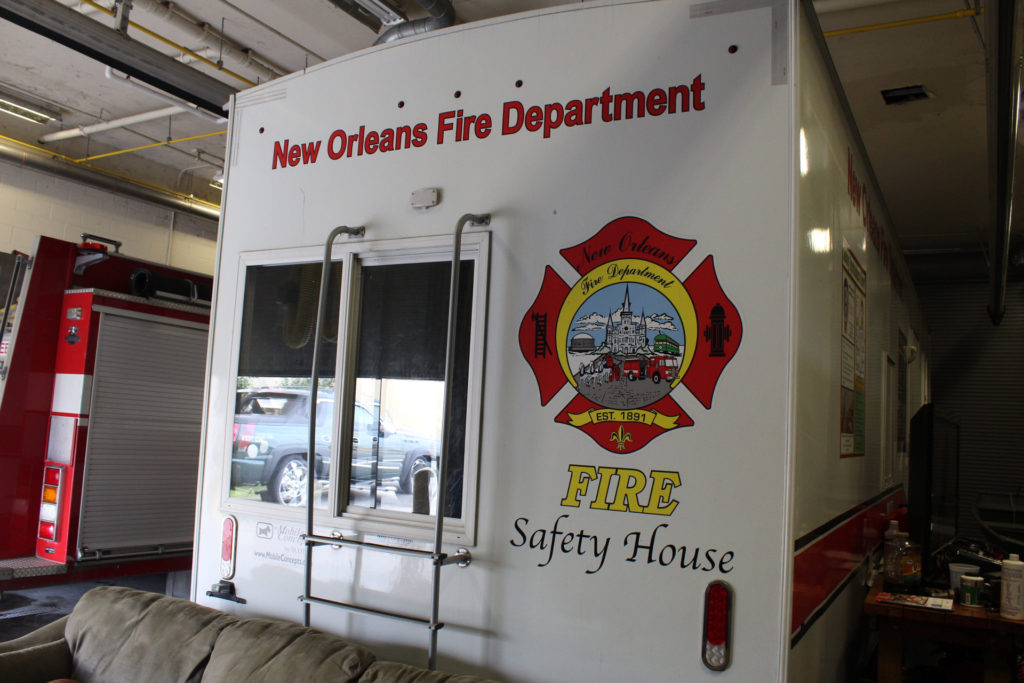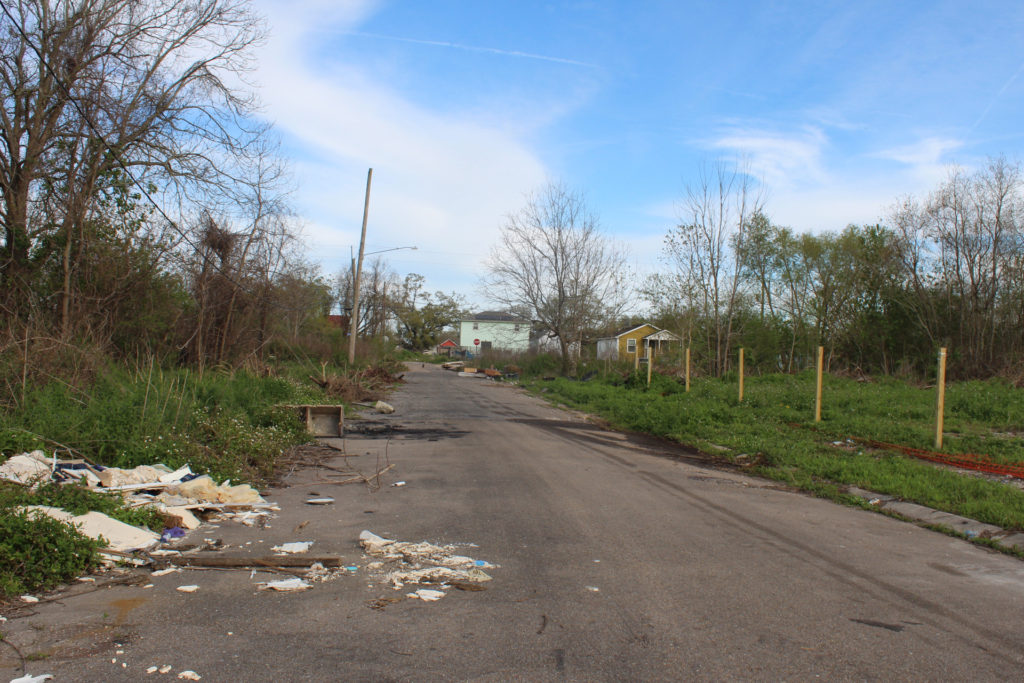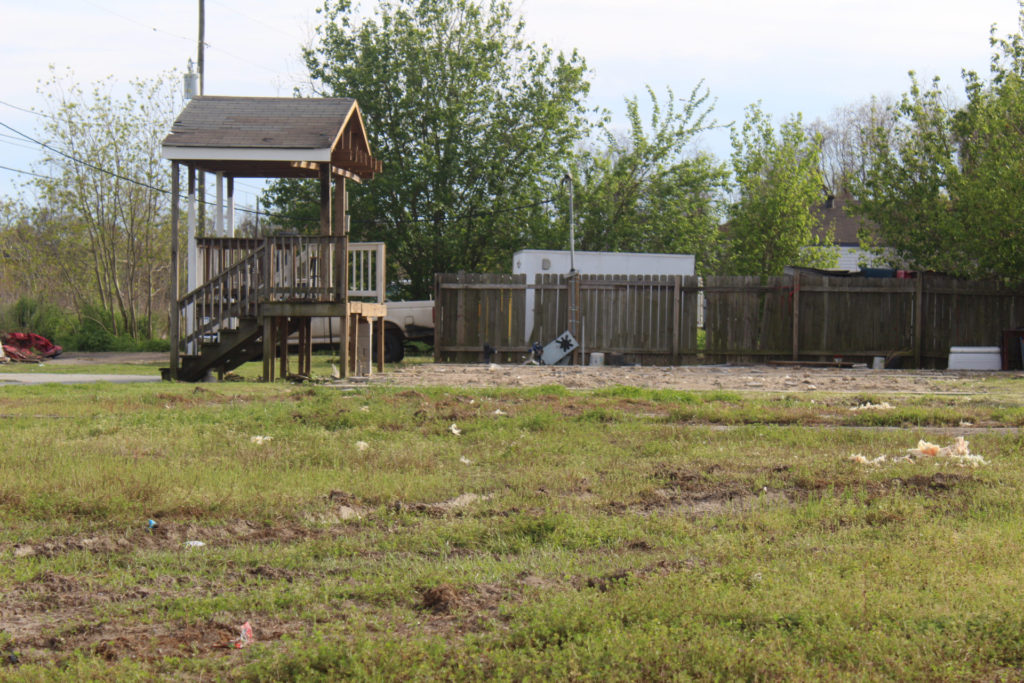Jimmie Harris, a firefighter of the New Orleans Fire Department Station 39 in the lower 9th ward, never anticipated the devastation that was brought upon the lower 9th ward. Harris is one of the few firefighters who are stationed at the New Orleans Fire Department Station 39. Harris traveled all over the world as a U.S. Army soldier before becoming a firefighter. He had retired from the Army as a Master Sergeant in 2014. Harris was with his fire department when Hurricane Katrina hit, and it was nothing he had ever seen before.
“From the time you crossed the industrial canal all the way through, mud everywhere,” Harris said. “It was a mess. It had this raw, sewer-like smell.”

Harris estimated that there were about three inches of mud on the streets and most people had about eight to 20-feet of water flooding their homes. Although his family was able to evacuate the city and went to Houston, Harris had to stay behind with his fire department. He wasn’t able to return to his home for two to three weeks after Katrina first hit. Upon returning to his home, Harris was filled with dismay after having seen his home in shambles after the water had receded. The water had moved everything towards the front of the house as the waters receded through the front door.
“It was heartbreaking,” Harris said.
Harris mentioned that the northern most part of the 9th ward was a ghost town with empty lots and abandoned homes. He said his station gets calls from time-to-time to put out fires over there and says that the area is very prone to wildfires due to the waist-high grass. Harris said that the northern most part of the 9th ward, which is Johnson St. to Florida Ave., and from the levee to the Jackson Barracks, is a secluded area.
“That’s the lowest part,” said Harris. “So, when I had eight feet, close to the levee had 20 feet. Houses just wiped out, gone. Most of them collapsed or floated away. Just horrible. No rebuilding, you just got to construct from the ground up.”
Harris worked to restore his home after Katrina flooded it with eight feet of water. Fortunately, his flood insurance paid it off. Most of the homes of his fellow firefighters were also submerged underwater.

“We tried to help one another, but everybody needed help,” Harris said. “It was kind of everybody on their own, so it took longer for us to get back up on our feet.”
The lower 9th ward was forever changed after the hurricane, and the community lost the vibrancy that it had once had. Some people slowly trickled back but the area was too devastated for many to return. Harris said that many of the houses in the neighborhood were owned by older people who were mostly retired. When they left due to the coming storm, they never came back. Harris said he was capable of doing most of the work on his home by himself, but you can’t expect the elderly to have that option too.
“I thought people would come back like I came back,” Harris said. “But when I saw the scope of everything and knowing that a bunch of senior folks left, the hope kind of drifted off.”
Simply returning to the neighborhood was not an easy task as it would require many of the residents to rebuild their homes. If people had flood insurance, they were able to luck out, but for those who didn’t were left with very few options. Harris stated that there was a severe lack of resources and state assistance towards restoration. Harris mentioned that the Road Home Program, which was a program funded by the U.S. Department of Housing & Urban Development, did try to help people.

“You had to let them give you a third at a time and you pay back, or let them buy you out, or you sell,” Harris said. “So, it was kind of a tricky situation that you had to weigh out, because either way you go, you’re still in debt.”
After 15 years, Harris has noticed individuals and couples coming to the neighborhood to start again. He felt that he had to take everything at face value and accept that it was going to take a long time for people to come back, but he never anticipated 15 years. According to Harris the neighborhood was very lonely for a long time and it took a lot of persuading to get his wife to return. It took Harris 3 years to rebuild his home, and it wasn’t until 2009 that his family returned from Houston.
Harris hopes to see the houses rebuilt, kids playing and having fun, and families going to work like before. Harris said that a lot of times, people upstate only see that the city is back up and running. They see Mardi Gras and other festivals as a sign that things are back to the way they are. They fail to see the reality of the situation down in New Orleans.
“They don’t see the areas that really got hit hard,” Harris said.